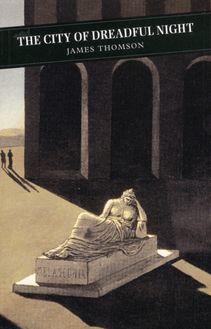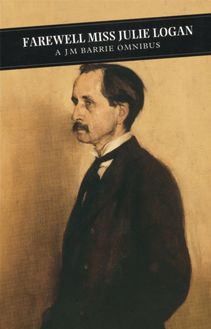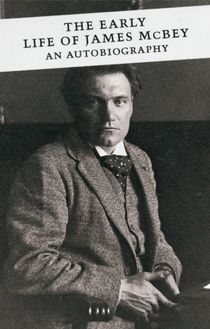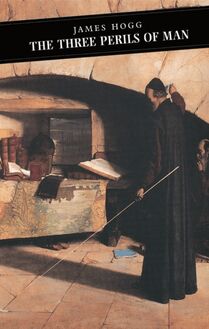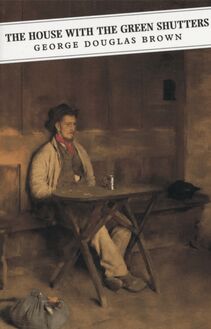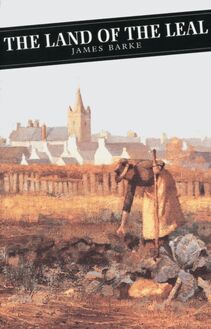Blood Of The Martyrs , livre ebook
237
pages
English
Ebooks
2010
Vous pourrez modifier la taille du texte de cet ouvrage
Obtenez un accès à la bibliothèque pour le consulter en ligne En savoir plus
Découvre YouScribe en t'inscrivant gratuitement
Découvre YouScribe en t'inscrivant gratuitement
237
pages
English
Ebooks
2010
Vous pourrez modifier la taille du texte de cet ouvrage
Obtenez un accès à la bibliothèque pour le consulter en ligne En savoir plus
Publié par
Date de parution
01 juillet 2010
Nombre de lectures
2
EAN13
9781847674937
Langue
English
Publié par
Date de parution
01 juillet 2010
Nombre de lectures
2
EAN13
9781847674937
Langue
English
Naomi Mitchison
THE BLOOD OF THE MARTYRS
Introduced by Donald Smith
Dedication
Books are never written only and entirely by their authors. There are always others who have helped to shape them. It will be obvious that this book could not have been written, or, with the same plot, would have been written very differently, a few years ago. Events shaped it, as they have shaped all of us and our works. Certain persons, also, have helped to shape this book, and to them I dedicate it: most of all, Lewis Gielgud. He and I planned and wrote together the play, As It Was In The Beginning, this book’s first cousin, as it were, and he will find here and there, his own words in the mouths of the people in my book; but he and I are such old and tried collaborators that each is welcome to the words and thoughts of the other. There were historians also who helped to guide and tidy this book, especially Martin Charlesworth, Guy Chilver and Margaret Cole; and there were friends who lived in the book with me while I wrote it, Rudolph Messel and others. And beyond and behind these known and certain and consciously collaborating individuals, there are other men and women whose names I may not even know; but my thought and imagination fashions and chooses and eliminates because of our mutual participation in events. There are Austrian socialists in the counter-revolution of 1934, sharecroppers in Arkansas in 1935, old friends in King’s Norton and new friends in Carradale: and the named and unnamed host of the witnesses against tyranny and superstition and the worship of the State, witnesses for humanity and reason and kindliness, whose blood is crying to us now and whose martyrdom will help to build the Kingdom which we all want in our hearts, and whose temporary manifestations in friendship and comradeship and collaboration give purpose and delight to our lives and deaths.
Contents
Introduction
PART ONE
1. Beric
2. Manasses and Josias
3. Persis, Eunice and Phaon
4. Argas
5. Lalage and Sophrosyne
6. Rhodon, Phineas and Sapphira, Sotion, Dapyx
7. Niger
8. Euphemia
PART TWO
1. The Sign of the Cross
2. The First Sacrament
3. The Second Sacrament
4. The Tempting of Beric
5. Compromise
6. The Comrades
PART THREE
1. The Bosses
2. Ends and Means
3. The Individual and the State
4. Stamping It Out
5. Difficulties of a United Front
6. State Methods
7. The Third Sacrament
8. The Seed of the Church
9. The Doctrine of Efficiency
10. Business Meeting
Introduction
Naomi Mitchison’s fiction from the nineteen thirties is marked by a sense of moral and spiritual crisis. This sense of crisis intensifies from her anthropological blockbuster The Corn King and the Spring Queen in 1931, to The Blood of the Martyrs in 1939. Although her early fiction belongs to the decade which followed the First World War and had been profoundly influenced by D.H. Lawrence, Naomi Mitchison was among the first to identify and express those topics now characterised as ‘thirties’ concerns. Art it was felt ought to be committed and socially relevant, and literature could only be justified if it was a mode of action in the real world offering ‘models’ or, in Auden’s phrase, ‘parables’ which clarified human issues and expressed moral intentions. For someone of Mitchison’s beliefs, such issues included the struggle for some definition of orthodoxy within left-wing movements, the uncertainty as to whether Russia provided a model, the belief in a socialist millenium, the all-pervading fear of war, and the need to identify with working-class aspirations and solidarity.
The need for a clear response to an extreme situation dominates The Blood of the Martyrs which was written in the shadow of fascism and anti-semitism in Germany and Austria, and completed as war and possibly German invasion seemed unavoidable. In its depiction of the first century Christian Church in persecution and martyrdom, The Blood of the Martyrs is both a parable for the times and Naomi Mitchison’s personal moral and political testament.
Such a work does not sit easily with a purely literary interpretation of ‘classic’ status. In the nineteen twenties as now, Naomi Mitchison did not write for a restricted literary audience but for the wider reading public which had been engaged in her own Edwardian childhood by authors such as H.G. Wells and Rudyard Kipling. The Blood of the Martyrs was not conceived primarily as an enduring aesthetic artefact but as a ‘testament to reality’. It is a declaration of faith in the capacity of human love to transcend evil and oppression. It reaches beyond an aesthetic response and, by appealing to a shared psychological and emotional background, attempts to change attitudes and actions in the real world.
The question of religion, therefore, goes beyond the subject matter of this book to become a central metaphor in its own right. Political commitment and religious passion are closely allied for Mitchison, since both offer a psychological coherence for the individual self a communal identity such as the anthropologists had identified in primitive societies. Equally of course such religio-political community can be diverted from moral ends to the service of unreason and evil: psychological identification with the group must be balanced by a commitment to reason and goodness.
In The Blood of the Martyrs Mitchison works from the religious end of the equation, arguing for a humanistic, social and political interpretation of New Testament Christianity. The Kingdom of Heaven is ‘Being fully ourselves towards one another: that is, letting what is of God become free of what men do to other men out of pride and greed.’ Sin is to be in the grip of the powers of this world and to behave accordingly. All in this condition are slaves, from the Emperor of Rome down, although paradoxically it is the actual slaves who have the greatest chance of release since they have least to lose. At the core of this creed are the deeds and sayings of Jesus of Nazareth not a Resurrected Lord in the mould of the mystery cults, but (like Kleomenes in The Corn King) a man turned legend.
One who lived for us who’ve lost hope and found it again and been reborn. Who promised that he would feed the hungry and give their turn to the humble and meek. Who will see there is equal justice at last, not one scale weighted. Not Romans and natives, Beric. Not masters and servants. Not ladies and whores.
With consistent panache, Mitchison redefines the key concepts of Pauline theology. Grace is to be in a state of right relationship with one’s fellows; love and forgiveness are the bonds of human community as opposed to the might and coercion of Rome; to act with moral purpose is to serve Providence rather than Lady Luck and the superstitions of arbitrary chance which pervade the Graeco- Roman world; prayer is a concentration of the common will, emotion and intention. The sacraments are an intense symbolic sharing of the community experience from entry and catharsis (baptism), through mutual service (foot- washing) and love (the agape meal), to the final shared death which is Mitchison’s replacement for the communion or eucharist.
The communal experience of the Church is a moral one of simple kindness, friendliness and practical support but it is also something more: the individuals concerned feel themselves to be part of a greater whole. This is expressed as being part of ‘The Will’, or as being moved by ‘the Spirit’ (‘some unknown and unmeasured power’), but in neither case is the will or spirit conceived of as being exterior to the sum of human persons that composes the community. These religious terms are taken from the Christian context in order to describe a quality or dimension of experience which all human beings can discover and share when they come together harmoniously.
The Christians, including Beric, are eventually martyred for this quality of experience rather than for an idea or creed. Their willingness to endure physical pain and death is a vindication of their awareness of a life which is more than material and more than individual.
The possession of such a group loyalty or ‘mythology’ is, from Mitchison’s standpoint, a necessary part of the balanced personality. Its absence leaves a vacuum which is in danger of being filled by a false cult of the irrational or the worship of power. Rome has lost her gods and the common will to serve the state, and the vacuum is filled by Nero, who with a mixture of megalomania and adroit manipulation, exploits the ‘natural wish of the people for gods and the gifts of the gods, the natural wish for a leader.’
‘I feel like a god,’ said Nero, ‘sometimes. Coming into the Arena, slowly, grandly, at the head of the great procession serpent-stretching behind me, lifted on the voices, the closing, rising cheers, the love, lifted above the sand that is so soon to take the blood … I am the Will of Rome and the people know it, the ordinary people who love me. For whom I make the great blood sacrifice.’
This is opium for the mass unconscious and the contemporary comparison with Nazi Germany is omnipresent, but it is a thematic rather than historical link. In fact Mitchison’s argument is that goodness must also involve an element of unreason ‘so as to make a hold on the unreason in the human soul’, otherwise the powers of the dark unconscious will take control.
It is important to grasp that Mitchison’s method in The Blood of the Martyrs is not didactic. Everything for which she argues is grounded in an evocation of collective human experience expressed in fluid economical prose which embraces both narrative simplicity and poetic intensity.
She took off the veil and laid it by, and then all of them came close round the table with the bread and the fish and the little meat rolls which Sapphira had cooked, and they held one another’s hands. Argas, too, had kissed Persi
